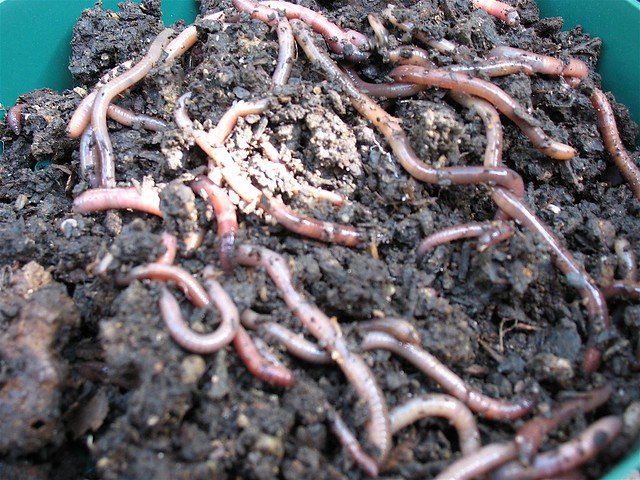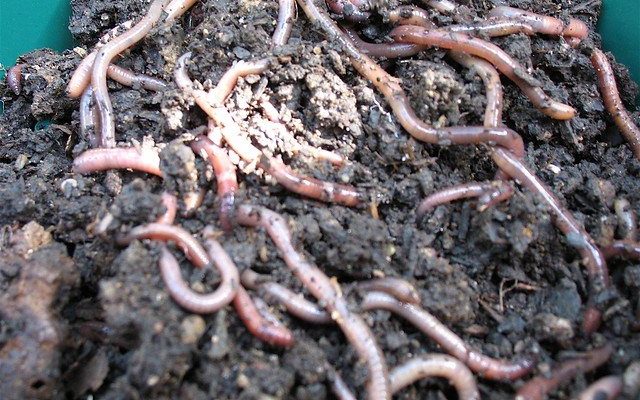
Let’s dive into the wonderful world of earthworms and raised garden beds. You might be new to gardening or just curious about how these wriggly critters contribute to your garden’s ecosystem. Whether you’re a seasoned gardener or just starting, understanding how earthworms function in raised beds can dramatically improve your gardening experience.
Why Are Earthworms Important for Gardens?
If you’ve ever turned over a shovel of dirt and spotted an earthworm, you might have wondered what they do down there. Earthworms are nature’s recyclers! They break down organic matter, like fallen leaves and kitchen scraps, into nutrient-rich compost. This process improves soil structure, allowing for better aeration and water retention.
When earthworms munch on organic material, they produce castings, which are a fancy term for their poop. And let me tell you, worm castings are like gold for your plants. They’re packed with nutrients that help plants grow stronger and healthier. With earthworms around, you’re not just planting seeds—you’re setting the stage for a thriving garden ecosystem.
Here’s the thing: without earthworms, the soil can become compacted and lifeless. They help create a habitat where beneficial bacteria can flourish, making nutrients more accessible to your plants. So, the presence of earthworms in your garden isn’t just a bonus; it’s essential for success.
Can Earthworms Survive in Raised Garden Beds?
Now that we understand their importance, let’s tackle the main question: do earthworms actually survive in raised garden beds? The answer is a resounding yes! Raised garden beds can be a fantastic home for earthworms, as long as a few conditions are met.
Raised beds often have good drainage, which is vital for earthworms. They prefer moist environments, not soggy conditions. If water pools in your raised bed, it can drown them. However, with proper soil management and occasional watering, earthworms can thrive happily in raised beds. Just like in nature, these little guys need a balanced environment to do their best work.
You might also be wondering about the depth of your raised bed. Generally, the deeper the bed, the better it is for earthworms. Most species can burrow down several feet, so a bed of at least 12 inches deep is ideal. This gives them plenty of room to move and feed.
Best Soil Mix for Earthworms in Raised Beds
Creating the right environment for earthworms starts with the soil mix you use in your raised garden bed. Here’s a simple recipe: combine compost, peat moss, and native soil in a balanced mix.
- Compost: This is a key ingredient. It provides the necessary organic matter that earthworms love to eat.
- Peat Moss: This helps retain moisture, creating an ideal habitat for earthworms.
- Native Soil: Incorporating local soil introduces beneficial microorganisms that can help your plants thrive.
Once you’ve mixed these ingredients, it’s good to check the soil’s moisture level regularly. Earthworms need a balanced moisture level—not too wet and not too dry.
Remember, the soil should feel like a damp sponge, not a swimming pool. If it’s too dry, consider adding water or more organic material, and if it’s too wet, improve drainage.
Earthworm Species for Raised Beds
You might be surprised to learn that not all earthworms are created equal. Different species thrive in different environments. For example, the common garden worm, *Lumbricus terrestris*, is great for raised beds. They tend to burrow deep and are excellent at aerating the soil.
Another species you might consider is the red wiggler, or *Eisenia fetida*. These worms are often used in composting and are fantastic at breaking down organic material. They thrive in upper layers of the soil, where they can feed on decaying matter, making them ideal for raised beds.
Choosing the right species can make a huge difference in how well your garden performs. So if you’re thinking about adding earthworms to your raised bed, it’s worth researching which types are best suited for your gardening style.
Common Problems and Solutions for Earthworms in Raised Beds
Just like any friendly neighbor, earthworms can face challenges. So, what problems should you watch out for? One of the biggest threats is **overwatering**. As mentioned before, earthworms need a moist environment, but too much water can drown them. Check your drainage and adjust your watering schedule based on the season.
Another issue is **soil compaction**. If you walk on your raised bed too much, it can become compacted, making it difficult for earthworms to move freely. To avoid this, consider using stepping stones or pathways to access your plants without stepping on the soil.
Lastly, be cautious with pesticides or chemical fertilizers. Earthworms are sensitive to chemicals, and these can harm them or even kill them off. Stick to organic methods for pest control and fertilization to keep your earthworm friends safe and happy.
Encouraging Earthworms in Your Raised Garden Bed
If you’re looking to attract more earthworms to your raised garden bed, there are some easy steps you can take. First off, consider adding organic materials regularly. Things like shredded leaves, kitchen scraps, and grass clippings create a buffet for earthworms to enjoy.
Mulching your garden bed is another great idea. A layer of mulch can keep the soil moist and provide shelter for earthworms. Plus, as the mulch breaks down, it adds more organic matter to the soil.
Finally, keep your garden bed covered during extreme weather—whether it’s too hot or too cold. A simple tarp can do wonders in maintaining a stable environment for your earthworm friends.
To wrap it all up, earthworms can absolutely survive and thrive in raised garden beds, provided you give them the right conditions. They’re essential for maintaining soil health and plant growth. Whether you’re experimenting with different soil mixes, choosing the best earthworm species, or finding ways to encourage them in your garden, understanding their needs can transform your gardening experience.
So don’t shy away from these little soil superheroes. With a bit of care and attention, you can ensure your raised bed is a cozy home for earthworms, leading to a flourishing garden filled with vibrant plants. Happy gardening!

